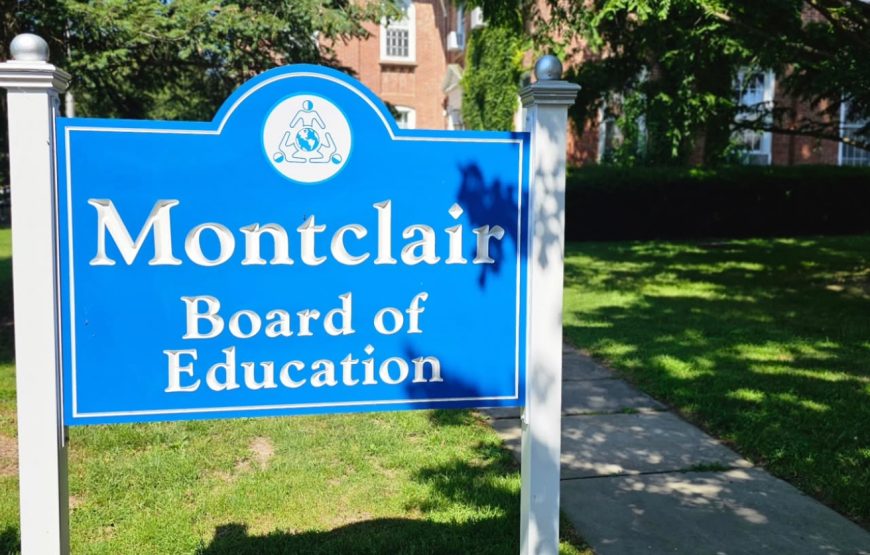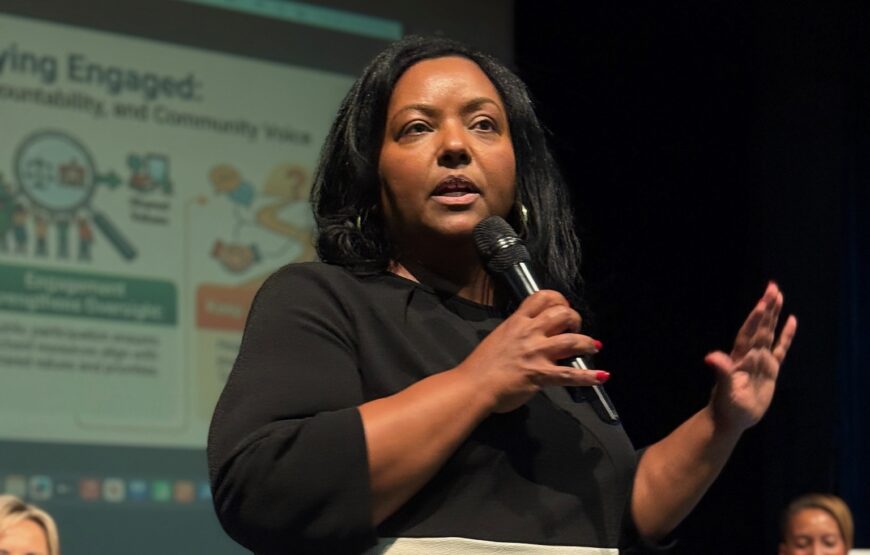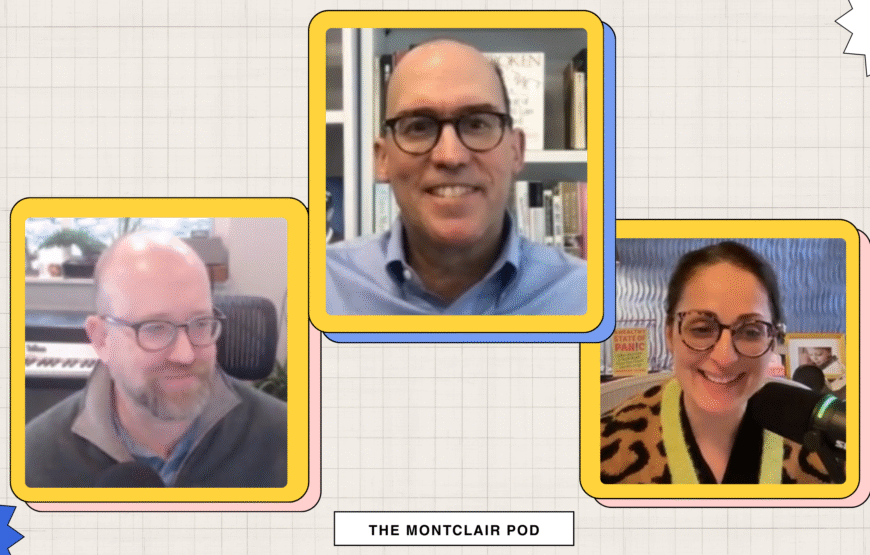This fall, Montclair voters will head to the polls to decide on three open seats on the Montclair Board of Education. The Board plays a central role in shaping the future of our public schools, from managing budgets to setting policies that affect every student and family in the district.
To help the community better understand the priorities and visions of each candidate, The Montclair Pod invited all five candidates to answer the same set of questions. Below are the responses from Yvonne Bouknight and Brian Fleischer. You can click here to read about this year’s three more candidates.
They have been lightly edited for punctuation and concision.
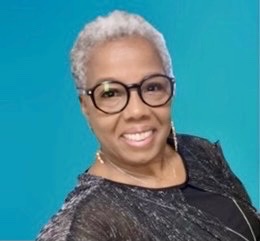
Yvonne Bouknight
What experiences, skills, and perspectives make you uniquely qualified to serve on Montclair’s Board of Education?
I am running for the Montclair Board of Education because I believe every student deserves the opportunity to succeed—and I have the experience, commitment, and vision to help make that happen.
For the past two and a half years, I have served on the Board, leading on the Curriculum, Special Education, Policy, and Culture and Climate Committees. In that time, I have worked to ensure equity and access for all students, because access is the foundation of achievement and advancement.
My 39-year career as an educator, along with my role as an Adjunct Professor at Kean University, has given me the insight to understand the challenges facing our students, teachers, and families. I know how to listen, collaborate, and advocate to create solutions that strengthen our schools.
As a proud Montclair resident and mother of two Montclair Public School graduates, I bring both professional expertise and a personal commitment to the success of our community’s children. Beyond education, my leadership with the National United Women in Faith and international partnerships in Haiti reflect my dedication to service, equity, and opportunity.
Guided by the words of Rev. Dr. Martin Luther King Jr., “The time is always right to do what is right,” I will continue to fight for policies that expand opportunity, uplift every student, and provide the tools, resources, and support needed for our schools to thrive. Together, we can ensure Montclair’s schools remain strong, inclusive, and a source of pride for our entire community.
Montclair Public Schools are facing significant budget challenges, including $18 million in debt and concerns about financial management. As a Board member, how would you work with the superintendent and the community to promote fiscal responsibility, transparency, and clear priorities in spending?
Yes, it is a fact: Montclair schools are facing an $18 million debt, and our community deserves a plan for stability. As a current Board of Education member, I believe the only way forward is to work in strong partnership with the superintendent, grounded in accountability and transparency.
First, we must restore fiscal responsibility by putting tighter controls in place and requiring regular, detailed financial reporting. Second, we must ensure transparency—families and staff should know where every dollar goes, through clear communication and public updates. And third, we must set clear spending priorities: protecting classrooms, special education, and programs that directly support student achievement—while cutting waste and inefficiency.
I am committed to making sure every dollar strengthens our schools and serves our students. That’s how we will rebuild trust, stabilize our finances, and keep Montclair’s schools strong.
Montclair is known for its diversity, but achievement gaps persist across the district. What specific policies or initiatives would you support to ensure that all students—regardless of race, income, or learning ability—have equal opportunities to succeed?
Montclair’s diversity is one of our greatest strengths, but persistent achievement gaps remind us that equity cannot be a slogan—it must be a practice. As a Board of Education member, I have focused on ensuring that every student, regardless of race, income, or learning ability, has access to the opportunities they need to succeed.
Going forward, I will continue to support policies that:
- Prioritize resources where needs are greatest, ensuring schools have strong academic supports, counseling, and enrichment.
- Expand access to advanced coursework and enrichment programs, such as AP Bootcamp and tutoring, so that all students—not just a few—can participate and excel.
- Strengthen special education and intervention services, so students with different learning needs are fully supported.
- Improve data transparency, so we can track equity gaps and hold ourselves accountable for closing them.
Equity means every student gets what they need to thrive. My commitment is to make sure Montclair lives up to its promise as a diverse community where opportunity is not determined by zip code, income, or background, but by the quality of education we provide to every student.
What frustrates you most about our schools?
What frustrates me most about our schools is the lack of transparency and the way misinformation and half-truths spread on social media. This erodes trust between the district and the community. As a Board member, I believe we must confront this directly—by improving communication, sharing clear and accurate information, and making sure families hear the truth from us first, not from rumors online. Trust and transparency are the foundation of a strong school district, and I am committed to rebuilding both.
What do you love most about our schools?
What I love most about our schools in Montclair is the energy, passion, and commitment of the school community. Families, educators, and students ask for—and demand—excellence, a value that has guided my family, my professional career, and my life in general. I believe that if something is worth doing, it must be done right, and I bring that same standard of dedication to my service on the Board of Education. It is that drive for excellence that inspires me every day to work toward stronger schools, equitable opportunities, and success for every student.
The relationship between the Board, district leadership, and the community has been strained in recent years. How would you recommend strengthening trust and collaboration among families, teachers, administrators, and the Board of Education?
The relationship between the Board, leadership, and community must be rooted in transparency, respect, and a shared purpose. To rebuild trust, we need open communication, consistent honesty, and space for all voices to be heard. As a Board member, I believe the best way forward is continued collaboration—families, educators, administrators, and the Board working together toward our district’s strategic goals. When we align around those goals, we move past division and ensure every decision is focused on advancing our schools and giving every student the opportunity to succeed.
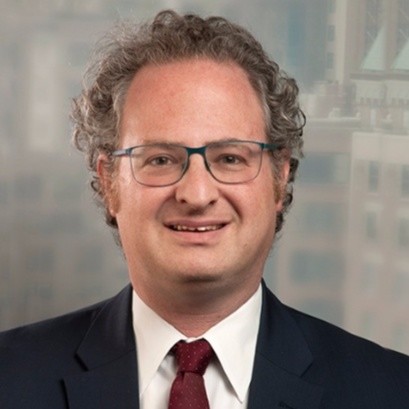
Brian Fleischer
Editor’s Note: Brian Fleischer has withdrawn from the race, though his name will appear on the ballot.
What experiences, skills, and perspectives make you uniquely qualified to serve on Montclair’s Board of Education?
Professionally, I am a lawyer who has dedicated the lion’s share of my career to the field of K–12 public education. From my time as a law clerk on the New Jersey Supreme Court serving as my Justice’s primary research clerk for the Abbott v. Burke V school funding equity case, through my years as Auditor General for the New York City public schools, Business Administrator/Board Secretary for the Montclair Public Schools, and now Director of Enterprise Risk for the New York City School Construction Authority, I have gained skills and experience in K–12 public education governance, finance and operations strategy and execution, compliance, internal audit and risk management, facilities planning, maintenance and capital projects, safety and security, technology, transportation, and food service.
I also am a proud Mountie and parent with a deep passion for K–12 public education and a lifelong connection with and commitment to the Montclair Public Schools. I believe that public schools can and must strive to be an engine for greater equity in our society, supporting all children in reaching their potential as educated, well-rounded, and engaged members of their communities.
My family moved to Montclair when I was five years old. I attended Watchung, Glenfield, and Montclair High School, graduating with the class of 1989. My mother was a kindergarten and first-grade teacher in the Montclair Public Schools for 23 years at multiple schools and a proud member of the Montclair Education Association. My father is an architect who served multiple terms on the Montclair Zoning Board of Adjustment and was on the project team for the renovation and expansion of Glenfield in the early 1980s.
Because of my love for the Montclair community and its public schools, my wife Beth and I chose Montclair when we were ready to raise our own family and have been Montclair homeowners since 2009. Beth is a school counselor at Teaneck High School. Our daughter Marlee is a senior and our son Xander is a freshman at MHS. Both came up through Nishuane, Hillside, and Glenfield.
Between my time as an employee with the Montclair Public Schools and my election to the Board of Education in November 2022, I remained actively engaged as a parent volunteer. I served as an administrator of the Montclair Moms, Dads and Parents Facebook Group, a member of the NAACP Education Committee, a PTA president at both Hillside and Glenfield, a member of the Montclair PTA Council’s Diversity, Equity and Inclusion Committee and Finance and Infrastructure Committee, and the Montclair PTA Council Vice President for Committees.
In my first term as a member of the Board of Education, I have further developed my knowledge, experience, and insight into the work and priorities of the district, including through service on the following committees: Facilities, Finance, Curriculum, Climate and Culture, Communications, Calendar, and Governance. I have also served as Board liaison to the Montclair NAACP, Montclair PTA Council, and Essex County School Boards Association. And I have received multiple years of mandated training in board member governance and service through the New Jersey School Boards Association.
As a Board member, I’ve had the opportunity to actively participate in three rounds of superintendent performance evaluations, three budget development cycles, the awarding of over 30 projects under the $188 million capital bond referendum, a strategic planning process that engaged parents, students, administrators, and staff to support the development of the goals and objectives for the district’s first Strategic Plan since 2013, and a robust superintendent search and selection process that incorporated extensive community and stakeholder inputs, drew passionate and talented applicants from New Jersey and around the country, assessed them across multiple criteria through multiple rounds of questions and challenges—including a heavy focus on opportunity gaps, fiscal stability, and transparency and community engagement—and led to the Board’s enthusiastic and unanimous selection of Mrs. Ruth B. Turner.
Montclair Public Schools are facing significant budget challenges, including debt and concerns about financial management. As a Board member, how would you work with the superintendent and the community to promote fiscal responsibility, transparency, and clear priorities in spending?
I have served on the Montclair Board of Education since January 2023. In January 2024 I joined the Board’s Finance Committee, and in January 2025 I became Chair.
In July I learned from our new Superintendent Ruth B. Turner and our Interim Business Administrator Dana Sullivan that the district had overspent its 2024–25 budgeted revenues and appeared to have approximately $11 million in outstanding obligations from previous years with no remaining revenue to cover these obligations.
Like many other community members and stakeholders who learned this information, I felt shock, anger, betrayal, and deep worry about the potential consequences for our schools and our students. But beyond that, despite thoughtful reassurances from Mrs. Turner and Ms. Sullivan that the Board and its Finance Committee could not and should not have been expected to ascertain from the information and documentation they were given that we faced an imminent and substantial operating budget deficit, I still feel compelled to grapple with the question: How did this happen “on my watch”?
When I ran for election in November 2022, I promised to bring my experiences and skills as a lawyer, an internal auditor, a former school business administrator, and an enterprise risk manager to my policy and governance work as a member of the Montclair Board of Education.
And that I did, often. The Board is a policy-making and governance body, trained and directed to confine our efforts to those lanes and not to cross over into the lanes of trying to direct the administration and operations of the district. I read and listened to every piece of input we received, I asked questions, and I and my fellow Board members flagged, pressed, and escalated concerns both arising from our own observations and those that were brought to us by other stakeholders. We called upon the district’s third-party auditors to attend Finance Committee meetings and address our questions and concerns in addition to what we asked of the administrators. Committee meetings slated for one to two hours often lasted three or more. Committee reports, that I often drafted and delivered at our public workshop meetings with far more detail than our Board member training and guidance suggest is necessary or even appropriate, were presented in public and posted to the website outlining the areas of inquiry, including but not limited to unpaid bills and open encumbrances, unbudgeted expenses, procurement controls, fund balance maintenance, and the need to improve inter-departmental communication to support more accurate budget projections.
Although many stakeholders felt they were not being heard, I assure you, the Board and the Finance Committee were listening and working to implement measures to improve communication, transparency, job performance, and accountability. Such concerns were material factors in last year’s superintendent hiring process and in the changes in the business office and in our third-party auditors.
And yet I did not know that we faced an imminent and substantial operating budget deficit until Mrs. Turner reported it. We received no such warnings from the third-party auditors or district administration, and there was nothing evident in the audit reports and financial reports presented to us over the course of my tenure. Mrs. Turner and Ms. Sullivan, after discovering and reporting on the operating budget deficit, agreed that it was not something the Board and its Finance Committee could have or should have ascertained. In many instances, questions that we asked were not answered completely or honestly.
We had no authority as Board members to access the financial system, audit the paper records, or to conduct any outreach to district employees or district vendors to investigate concerns brought to us by various stakeholders. It is certainly understandable to second-guess what else could have and should have been asked or discovered. I have been wrestling with that myself.
With 20/20 hindsight, knowing now what’s been presented about the known and suspected components of and contributing factors to the budget deficit, I can and have reexamined past Board Secretary’s Reports, Board Treasurer’s Reports, Appropriation Transfer Reports, and Bills Lists looking for the breadcrumbs. And with 20/20 hindsight, I feel I can see breadcrumbs, or at least shadows of breadcrumbs, mostly in the negative space of some of those mandated and public reports. In real time when we received those written reports at the committee meetings, with no accompanying explanation of any area of pressing concern, despite our persistent inquiries, it appeared there was enough revenue available to get us through the year and hand things over to the new team.
Again, we had serious concerns about fiscal management and controls, and we pursued those concerns. And we ultimately drove the material changes that placed Mrs. Turner and Ms. Sullivan in a position to discover the deficit and do the necessary research to quantify it and break it down, but we weren’t able to stop it before it happened. I do believe that we collectively and collaboratively need to assess that and document the root causes and lessons learned, and we need to implement stronger governance, internal controls, and procedures to prevent recurrence. Mrs. Turner at her town hall indicated a desire to tap the collective brainpower of our community to engage in that work, and I appreciate and support that open and collaborative approach 100 percent.
Montclair is known for its diversity, but achievement gaps persist across the district. What specific policies or initiatives would you support to ensure that all students—regardless of race, income, or learning ability—have equal opportunities to succeed?
I’ll start by noting the initiatives that I have already supported. In my time as Business Administrator from 2013–2016, in response to recommendations from the Achievement Gap Advisory Panel, we created and funded positions for an Assistant Superintendent for Equity and a Student Equity Advocate. We provided Undoing Racism training to all district employees. As a PTA and NAACP volunteer and then a candidate for the BOE, I advocated for universal public prekindergarten and for the development and tracking of key risk indicators and key performance indicators and aligned goals and objectives connected to the opportunity gap, including an assessment of segregation in certain in-school programs and disproportionality in student discipline and in special education referral and classification patterns that are both symptoms and drivers of inequity, contributing to the opportunity and achievement gaps.
Since joining the BOE, we have provided governance oversight and financial support for the establishment of academic achievement, equity, diversity, and inclusion initiatives, including steady expansion of free public prekindergarten, multiple new career and technical education programs and initiatives, and an expanding AP Bootcamp Program aimed at encouraging, expanding, and supporting the successful participation of more students of color in AP-level coursework. We approved numerous new courses to expand student options and opportunities at MHS, including AP African American Studies and AP Precalculus/Intro to Calculus. We provided governance oversight for the review of instructional time across schools and the expansion of scheduled time in K–8 in both ELA and Math, and we supported the development and approval of updated curricula and instructional programs and resources. And we provided governance oversight for improved HIB investigation and reporting practices, as well as suspension monitoring and reporting practices, including trend and data analysis, to inform the development of more effective preventative and responsive interventions and restorative practices to support a more equitable, safe, and healthy learning environment for all students. We heavily emphasized approaches and strategies for addressing opportunity gaps in our superintendent search and selection process.
There has been progress, but there is much more that has to be done to ensure that all students have equal opportunities to succeed. Serving the best interests of all children, with a driving commitment to equity, access, and inclusion, remains a shared responsibility of all stakeholders, including general and special education staff, school and district administration, the Board, and the community. And we need to have processes in place to ensure that the students are achieving positive outcomes, and where students are not achieving positive outcomes, that we are adjusting their program accordingly.
Specifically on special education, we need to ensure that the district is continuing to move forward with its implementation of the recommendations from the GoTeach audit of our special education program, and that those changes are effective and sustained. And we need to maintain effective channels for communication and collaboration with the Special Education Parent Advisory Council and the community of parents and children who are served in special education to listen to their feedback regarding how effectively we’re rising to meet the needs of each child. This includes ensuring accommodations that make school events and activities accessible to all.
Specifically on English Language Learners, with the increasing number of non-English-speaking parents and students in the district, we need to assess our current resourcing and programs to support these families and consider how best to adjust to most effectively create a more welcoming and supportive climate and culture, and whether we should supplement and/or migrate away from pull-out ESL and sheltered English toward the creation of a two-way bilingual model where Spanish-native students acquire English and English-native students acquire Spanish. In the interim, we need to at least provide equitable access to the district, the schools, and the curriculum with translators and translated materials for parents and students.
What frustrates you most about our schools?
Instability and inconsistency in leadership, which undermines both progress and accountability. It is difficult to develop, implement, and sustain programs and initiatives to improve outcomes for all students amid constant leadership churn, reorganizations of central office, and fiscal strain.
Following a decade of instability and turnover in the Superintendent’s office, this Board supported and guided Dr. Jonathan C. Ponds to be the longest-tenured Superintendent and first and only Superintendent to receive a contract renewal since Frank Alvarez, extending his contract through a ninth year. We engaged parents, students, administrators, and staff in a collaborative strategic planning process that resulted in the development and approval of the district’s first strategic plan since 2013, outlining goals and objectives in the areas of Achievement for All, Community Engagement and Communication, Operations and Systems, and Equitable, Safe & Healthy Learning Environment. Tragically, we then lost Dr. Ponds and had to adjust.
I think we have now hired the right person to lead us for the next decade or more in Mrs. Ruth B. Turner, and we need to both support her and hold her accountable, as she’s asked us to do. I believe in compassionate accountability. That means collaboratively developing goals and objectives with the superintendent and other critical stakeholders, with understanding of and empathy for the complexity and difficulty of the work and analysis of resource needs and limitations. Expectations should align with our community’s priorities and values, but also need to be clear and fair, and the administration needs the support of the Board and the community through planning and execution. Within that framework, conflicts and excuses can be minimized, sustained progress and meaningful, respectful, and compassionate accountability is possible.
What do you love most about our schools?
So many things! The diversity of our students and families, our staff, our schools and programs (K–8 magnet programs, MHS Small Learning Communities, teams and clubs) create so many unique opportunities for learning, for passion and expression (the arts!), and for character growth and personal development.
As an alumnus, I feel the Montclair Public Schools prepared me well for college, my career, and my social and civic engagement within my community and the broader society. I returned to Montclair with my wife to raise our children here because I wanted them to have that same exposure and experience.
And at a time when so many communities across the country are engaged in constant culture war battles among adults and in many cases a broad rejection of the mission and importance of public education, I see in Montclair, despite all our various public arguments and controversies, a consistent and broad embrace of the centrality of our public schools and their success to who we are and what we value as a community, across lines of race, religion, and income, and a broad embrace of and commitment to the values of diversity, equity, and inclusion. The Montclair community’s broad support for our public schools was clearly demonstrated by the overwhelming voter approval of the November 2022 facilities bond referendum.
These are among the reasons why I bleed Mountie blue.
The relationship between the Board, district leadership, and the community has been strained in recent years. How would you recommend strengthening trust and collaboration among families, teachers, administrators, and the Board of Education?
An effective school board needs to be able to engage in effective multi-directional communication that empowers all families to understand how they can most effectively partner with the district to help their children and all children in the district to reach their potential, that empowers district staff to serve the needs of all children in the district within the context of a healthy and supportive work environment, and that effectively solicits and leverages the support of other community partners.
In the spirit of the New Jersey Open Public Meetings Act, it is important that all school board members actively demonstrate at their meetings a commitment to open, inclusive, respectful, empathetic, and collaborative dialogue, deliberation, and decision making, as well as carrying that same mindset into the school board’s closed session and committee work.
This is a commitment I have always brought to my work, both in my career and in my volunteerism, and that I have done my best to carry into my work on the Board.
Relationships and trust among the Board, district administrators, school administrators, staff, and families have been strained for a long time. In addition to engaging and communicating with all stakeholders in ways that are grounded in empathy and respect, equity and inclusion, we also need to commit to transparency and accountability, open and collaborative dialogue, deliberation, and decision making. That includes being open and honest about positive and negative news and results, supported with clear and effective management reporting on timelines and performance metrics.
All of that contributes to establishing trust among district stakeholders, and relationships built on trust are both healthier and easier to sustain.
